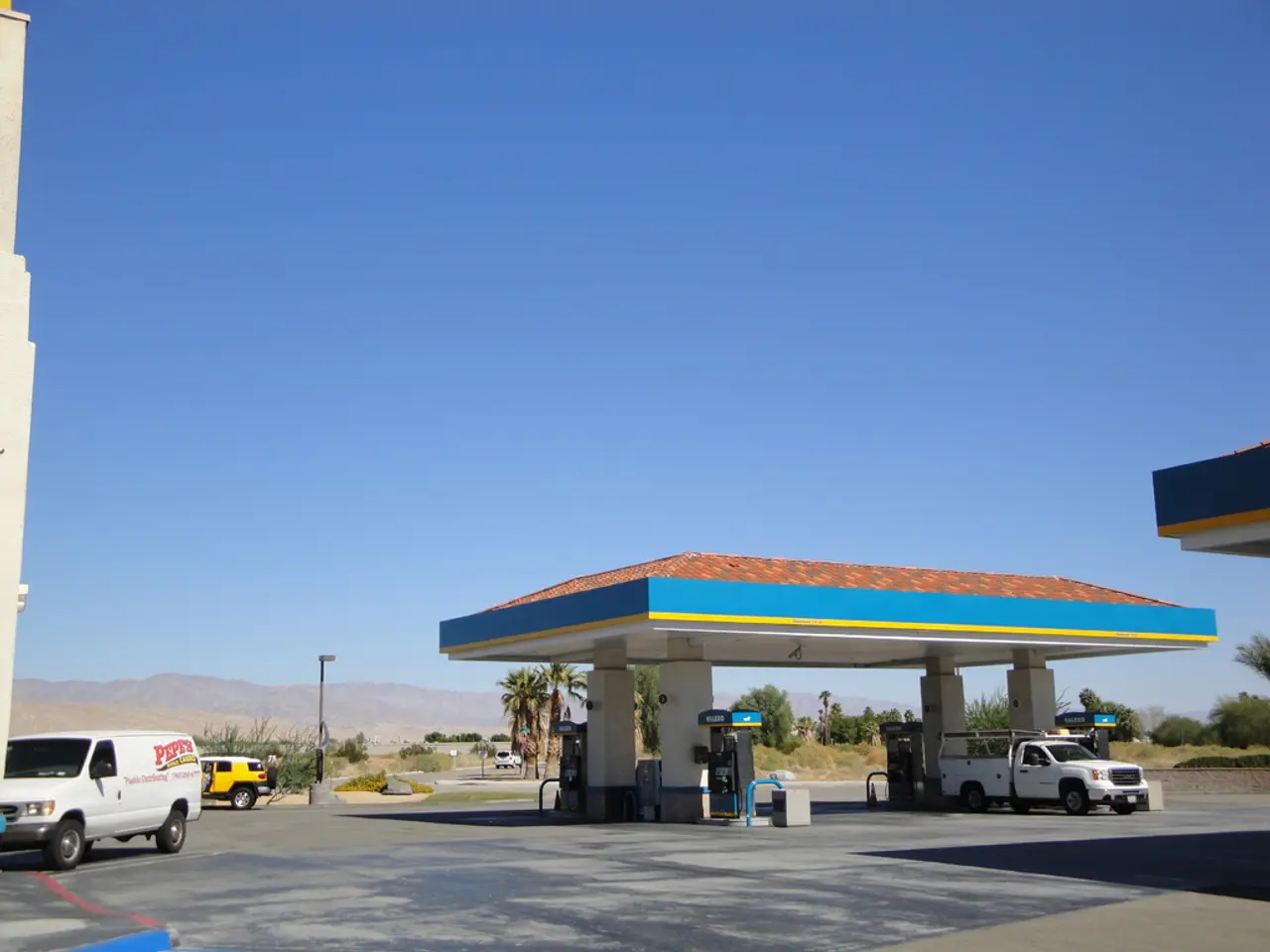Skyrocketing Oil Prices: Fueling Drivers' Wallets
Skyrocketing Oil Prices: Noticeable surge in gasoline and diesel costs - Skyrocketing oil prices: noticeable surge in gasoline and diesel costs
Here's a lowdown on the latest surge in oil prices and how it's pinching your gas tank.
- *
The ongoing tension between Israel and Iran is sending shivers down the spine of the global oil market. The automobile club has weighed in on the matter, stating that the ongoing conflict could potentially lead to a blockade of the Strait of Hormuz, a waterway critical for oil supply routes, thereby disrupting a whopping one-third of the world's oil production.
The escalating conflict has recently caused an approximate 10% jump in oil prices, adding around $10 per barrel to the costs. This escalation has sparked concerns among experts and investment banks, who warn that further disruptions could lead to a steep increase in oil prices, potentially exceeding $100 per barrel.
Worried about filling up your tank? The ADAC advises drivers to fuel up in the evening. Filling up between 19.00 and 20.00 hours could save you around 13 cents per liter.
- Oil price
- Iran-Israel Conflict
- Strait of Hormuz
- ADAC
- Evening Fueling
Background on the Strait of Hormuz
The Strait of Hormuz, a narrow but crucial waterway, is the lifeline for approximately one-third of the world's oil and about 20% of global liquefied natural gas shipments. It serves as the primary maritime route for oil exports from major Gulf producers such as Saudi Arabia, Iraq, Kuwait, and the UAE.
If the Strait were to be closed, blocked, or subjected to attacks, it could cause significant disruptions to global energy markets, leading to severe economic implications.
Disruption Risks
Although the Strait remains open as of mid-June 2025, Iran has hinted at the prospect of closing it, which would have devastating effects on global oil markets. Potential risks include deliberate blockades, seizures or attacks on vessels linked to Israel or its allies, unintended strikes from sea mines, drones, or missiles, and confiscations.
Such disruptions would not only halt Iranian oil exports (approximately 2.1 million barrels per day seaborne) but also threaten the flow of oil from other Gulf producers, exacerbating the supply shortage.
Geopolitical and Market Dynamics
The ongoing conflict has increased the geopolitical risk premium priced into oil, reflecting concerns over supply interruptions and regional instability. This elevated risk is driving volatility in crude benchmarks like West Texas Intermediate and Brent Crude, which have recently reached multi-month highs due to the conflict.
International stakeholders are closely monitoring the situation, with potential military involvement adding further uncertainty.
- The escalating Iran-Israel conflict poses a threat to the Strait of Hormuz, a vital passageway for oil supply routes and employment for seafarers in EC countries.
- Despite the potential disruptions to global oil markets, sports leagues across EC countries continue to enforce employment policies aimed at fostering fair competition and promoting athlete welfare.








